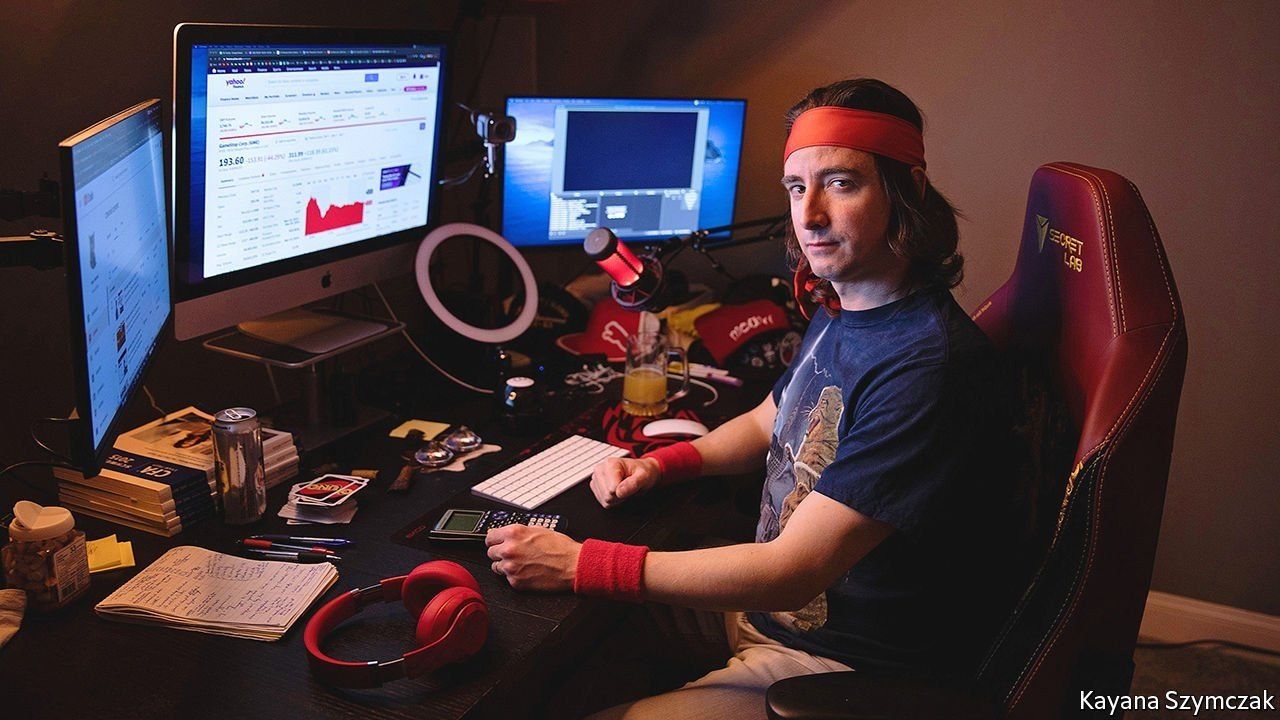
The Revolution That Wasn’t. By Spencer Jakab. Portfolio; 300 pages; $28. Penguin Business; £20
A YEAR AGO, on January 28th 2021, the price of a single share in GameStop, a struggling purveyor of video games, climbed to an all-time high of $483. That was nearly 200 times the low it had hit ten months previously, and almost 30 times its price at the start of the year. GameStop was the most-traded stock in America on one of its busiest-ever trading days. The surge in activity left retail brokers unable to meet capital calls from the settlement system, forcing them to suspend buying in a handful of stocks. A congressional hearing was held to investigate. How did this happen?
Spencer Jakab, a columnist at the Wall Street Journal, unknots the threads of this complex financial tale. His is a pacey and comprehensive account that takes in the structural changes in finance and the media that made the turmoil possible. The ingredients included the prominence of a chatboard on the Reddit website called r/wallstreetbets; the rise of Keith Gill (pictured), a buccaneering investor; a “Gamestonk!!” tweet by Elon Musk; and the political outrage of both Alexandria Ocasio-Cortez and Ted Cruz. Produced at impressively high speed, the book ends with some sage advice for retail investors: stick to low-cost diversified funds, and sit on them.
Its thrust is that a widespread interpretation of the GameStop episode—as a triumph of Davids (retail investors) over the Goliath of Wall Street—is mistaken. The narrative of little guys taking on the establishment was indeed widely peddled at the time, with some reason. Mr Gill, better known by his YouTube alias “Roaring Kitty”, or his Reddit handle “DeepFuckingValue”, was a long-term booster of GameStop, and posted screenshots of his account balance soaring into the tens of millions of dollars. Meanwhile some professional hedge-fund managers who had short-sold the company lost billions.
Even at the time, though, it was obvious that other hedge funds and financiers had piled into the trade. And it was clear that outfits like Citadel and Goldman Sachs, which generally make meaty returns from high trading volumes, would do well. The idea that these bits of Wall Street profited is not quite the counter-intuitive insight Mr Jakab implies.
He faces another obstacle. The best books on financial dramas take readers behind closed doors—using hitherto undisclosed details to shed light on, say, the decisions to initiate quantitative easing or let Lehman Brothers sink. But the GameStop saga unfolded very publicly. The critical events were posts on a public forum, tweets and a congressional hearing. Those who followed them closely will find little to surprise them here.
Still, Mr Jakab’s knowledge of Wall Street shines in the historical context he provides and the industry aphorisms he relays (the retail investors who can lose out when hedge funds prosper are typecast as “a lot of dentists”). Despite the density of the subject matter, which includes “rehypothecation” and “gamma squeezes”, the story is deftly told. If the first draft of history was not quite on the money, as Mr Jakab contends, his second go has set the record straight.
This article appeared in the Culture section of the print edition under the headline "The house always wins"
